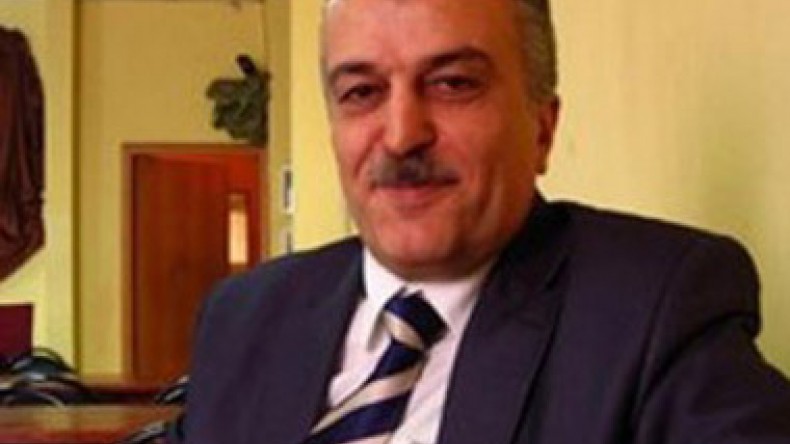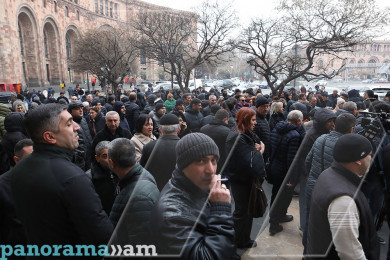
Fahraddin Aboszoda: Heydar Aliyev, moved to Iran by Soviet secret services' order as illegal agent and worked as taxi driver
“Most of his adult life Heydar Aliev served in the state security bodies. The beginning of his activities in these bodies coincides with the beginning of the revolutionary events that took place in Tabriz (Iran),” says the article published on IA “REX” site by Talysh National Movement leader Fahraddin Aboszoda.
The author points out that in August 1941, in connection with the beginning of World War II, Soviet troops were led to the territory of Iran, and in 1945 in Tabriz the National Azerbaijani Government was established which was headed by Seyed Jafar Pishevari. The Government existed until 12 December 1946. Taking advantage of the withdrawal of Soviet troops from the territory of Iran, as soon as the World War II was over, the shah's forces put down the rebellion in Tabriz.
“According to some informed sources, Heydar Aliyev was moved to Iran for illegal work, before the revolutionary processes started in Tabriz. He settled down in Tabriz, where he worked as a taxi driver. Apparently, Heydar Aliyev’s participation in the revolutionary process played an indelible role in his life. It was due to her excellent work in Tabriz that he went up by leaps and bounds of the career ladder later,” the article says.
The author notes that the national government of Tabriz adopted a calendar which includes the month Azer (coinciding with the November-December months of the Gregorian calendar). The members of the already formed government named the formation of it “the revolution of 21 Azers” which coincides with the 12th of December. According to the source, in memory of the revolution Heydar Aliyev “appointed” the day of his death on that exactly day.
The article says that Heydar Aliyev was in charge of Middle East, Iran and Turkey for many years by the order of KGB (Committee for State Security) of the USSR and was considered one of the best specialists in that field.
Heydar Aliyev was friend to U.V. Andropov who immediately after taking the office in 1982, insisted that he went working in Moscow as deputy chairman at Council of Ministers of the Union of Soviet Socialist Republics (USSR). Heydar Aliyev told the newspaper “Novye Izvestia”: “We were in close relations, even friends, and yet I said: Yuri Vladimirovich, allow me to stay in Baku. Andropov insisted, and I moved and took the office of the first deputy chairman of the USSR Council of Ministers.”
According to the sources of the author, Aliyev was soon to become the Chairman of the Government, which would “probably affect the development of the Soviet Union with another scenario.” But the sudden death of Andropov brought to some corrections in Heydar Aliyev’s biography. At the Politburo meeting on March 11, 1985, where the election of the new Secretary General was being discussed, Aliyev expressed his support for Mikhail Gorbachev. However Heydar Aliyev fell into disgrace after Mikhail Gorbachev took the office.
In 1987, he was forced to resign.
“After that, he was not permitted to travel abroad for several years and was forced to live in Moscow. In July 1990, Heydar Aliyev managed to return back to Baku by the help of some high-ranking Armenians living in Moscow who were from the inner circle of Mikhail Gorbachev. After living in Baku for some time, he left for Nakhijevan, where on September 3, in 1991 was elected the chairman of the Supreme Soviet of Nakhijevan Autonomous Soviet Socialist Republic. In early June 1993, a riot occurred in Ganja which was headed by Colonel S. Huseynov. Heydar Aliyev’s hour of triumph approached. In June 15, 1993, he became the Speaker of the Parliament of Azerbaijan, and only on October 3, he was elected as the president of the country,” the article says.
While being the First Secretary of the Communist Party of Azerbaijan CPU Aliyev, during one of his visits to Yerevan secretly met with the leader of his compatriots – the “Azerbaijanis of Armenia”, who in those years, were mainly working there on minor works, like cleaning streets of the city, etc. Heydar Aliyev suggested them to move to Baku. After that, though the registration of nonresidents in Baku was strictly forbidden by the direct order of Heydar Aliyev, the Azerbaijanis of Yerevan (eraz) and inhabitants of Nakhijevan started moving to Baku and its suburbs massively, for permanent residence. Thus, Heydar Aliyev created for himself a strong social base in the face of eraz and Nakhijevan inhabitants.
“Despite the fact that he came to the office of the first secretary with the slogans against regionalism and corruption sooner his fellow-citizens took the more or less significant positions in the republic, and the corruption became a life style for the officials,” the article says. The author also mentions that in the late 1980s about 200,000 erazs moved to live in Azerbaijan; however, the settlers refused all persuasions of some leaders to settle down in Nagorno-Karabakh’s territory, and preferred to settle in the capital.
The author notes that almost from the very first day of his leadership in ASSR - since 1969 - Heydar Aliyev had been heavily involved in the creation of his own clan, which consisted of erazs, inhabitants of Nakhijevan and Kurds. Later on, after he came to power for the second time in 1993, when he faced big problems in stabilizing the situation in the country, it was his clan that stood at his back, and helped him to defeat his enemies and rivals.
“During his presidency, he created a perfectly working “power machine” consisting of his own trusted people. He chose each of the members of his team scrupulously and tested them repeatedly in practice. Due to this fact, at the beginning of his presidency Ilham Aliyev, who inherited this position from his father, did not meet any significant problem. Heydar Aliyev left his son multibillion-dollar fortune and a well-organized team, headed by Ramiz Mehdiyev,” Fahraddin Aboszoda writes.
Newsfeed
Videos






























